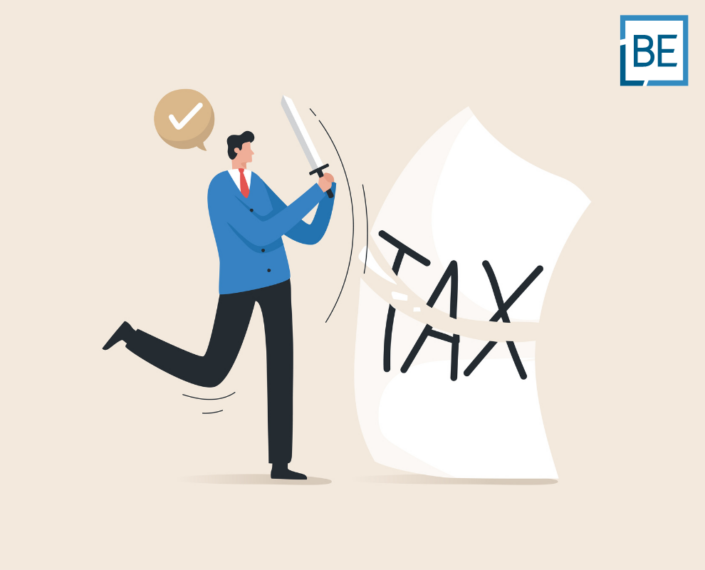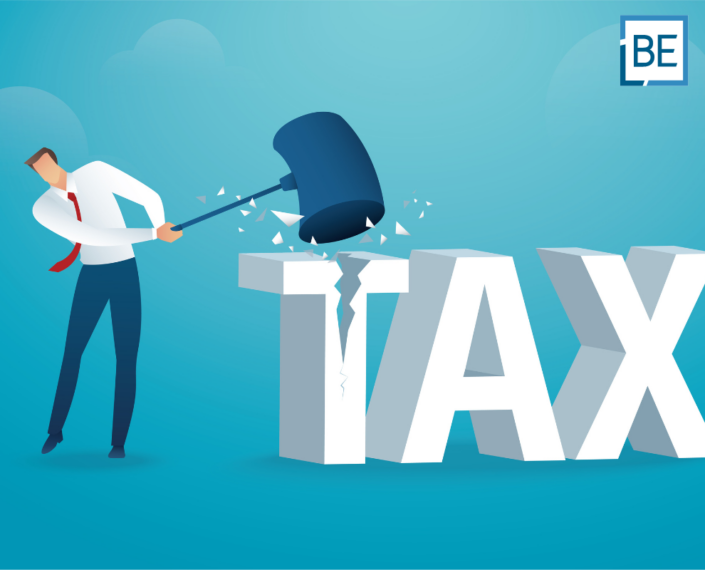Belaws Home ›› Thailand ›› Blog ›› Hiring Independent Contractors in Thailand
Corporate
Hiring Independent Contractors in Thailand
25/03/2024
Thailand, with its proximity to Asian markets, low employment costs and high standards of living has become a popular destination for businesses looking to expand internationally. However, hiring independent contractors in Thailand can be a complex process. From complying with Thai labour laws and tax practices to correctly classifying workers, there are several factors to consider.
In this blog post, we will walk you through everything you need to know before hiring contractors in Thailand, including Thai labour laws, tax practices, and how to avoid misclassification.
Key points
- Independent contractors in Thailand must meet criteria like having a written contract and being financially independent to be correctly classified.
- Misclassifying employees as contractors can lead to fines, back taxes, and legal issues for companies.
- Contractors are responsible for their own taxes and social security contributions.
- Certain jobs are reserved for Thai nationals only regardless of contractor or employee status.
- Options for paying contractors in Thailand include bank transfers, money orders, online services, and global payroll providers.
What is an Independent Contractor?
Independent contractors play an important role for many companies in Thailand, contributing their knowledge and expertise across various sectors. In order for a worker to be classified as an independent contractor, the following criteria must be satisfied:
- Independent and Autonomous: Unlike employees, contractors operate independently, controlling their work methods and schedules.
- Contractual Agreements: A written contract must be in place clearly establishing the relationship between the parties, outlining project scope, payment terms, and duration.
- Financial Responsibility: Contractors manage their own taxes and social security contributions, unlike employees who have these deducted from their salaries.
Accurately classifying workers is important as failure to do so could result in legal implications. The Thai government protects both employees and contractors through specific regulations, ensuring fair treatment and compensation.
How are Independent Contractors Different from Employees?
Knowing the difference between independent contractors and employees in Thailand is key for employers and workers alike. The main distinction between a contractor and an employee is that an employee is governed by employment agreements and whereas a contractor is governed by a service agreement
Employment Agreement
This defines an employer-employee relationship, dictating working hours, tasks, and compensation. Employees receive benefits like paid leave and social security contributions from the employer.
Service Agreement
This outlines a project-based collaboration between a client and an independent contractor. The contractor controls their work schedule and methods, receiving payment upon completion. They are responsible for their own taxes and social security contributions.
The correct classification is an important distinction as it directly affects the rights, responsibilities, and legal protections of the parties involved including:
- Employee Rights: They benefit from minimum wage regulations, overtime pay, sick leave, and termination procedures outlined in labor laws.
- Contractor Responsibilities: They manage their own taxes, social security, and work schedule, with greater flexibility but less legal protection.
- Employer Implications: Misclassifying workers can lead to penalties and legal disputes. Ensure accurate classification based on established criteria.
| Independent Contractors | Employees | |
| Level of Control | Typically an independent contractor will have more control over their work and scheduling. | Employees are subject to more control from the employer. |
| Taxation | Contractors are responsible for their own tax calculations and payments, including income tax and social security contributions. Typically a contractor will invoice the hiring company for their services and deal with their own tax filings.
Typically, WHT tax will be applied on the payment of the contractor. |
Employers are responsible for deducting income tax and social security contributions from an employee’s salary, as well as handling the administrative aspects of tax compliance.
The company is responsible for deducting the WHT from the payment and providing the WHT certificate. |
| Benefits | An independent contractor will typically not receive employee benefits such as health insurance, paid leave, or retirement plans from the hiring company. | Employees are entitled to benefits such as paid leave and other legal benefits as well as company benefits such as health insurance, and retirement plans provided by the employer. |
| Liabilities | Contractors cannot rely on employment-related protections. | Employees can rely upon protection from labor laws e.g. minimum wage, termination procedures, and workplace safety. |
| Agreement | Contractors typically have a written service agreement which clearly states the terms of their services, including deliverables, timelines, and compensation. | Employees will have an employment contract which states the terms of the employer-employee relationship, roles, responsibilities, benefits, and termination procedures. |
What Happens if you Misclassify an Independent Contractors as an Employee?
In Thailand, there are two main types of employment: “contract for work” and “contract of services.” Misclassifying workers can have serious consequences for both employers and employees.
If you misclassify an employee as a contractor, you may be required to pay fines, back taxes, and back pay for benefits they were not entitled to receive. On the other hand, misclassifying a contractor as an employee can result in additional taxes and benefits that are not required.
What are the Penalties for Misclassifying Workers in Thailand?
While hiring contractors can be a great option for businesses, however misclassifying employees as contractors in Thailand face the following penalties:
- Paying all outstanding withholding taxes, plus a 1.5% penalty.
- Fines of up to THB 2,000 for failing to file the correct withholding tax return form.
- Imprisonment of six months and/or a fine of up to THB 20,000 for failing to register the employee with the Social Security Office within 30 days of the employee’s start date.
- A fine of 2% of any unpaid social security contributions per month.
- If you terminate a worker, who is considered as an employee, rather than a contractor, and the company fails to issue any due severance payment upon termination runs the risk of facing six months of prison and/or a fine of up to THB 100,000. Furthermore, offending parties could be liable for a 15% interest on unpaid severance payments.
What other Considerations are Relevant for Managing Contractors in Thailand?
When hiring independent contractors in Thailand, there are a few specific considerations to keep in mind:
Permanent establishment
One risk of hiring independent contractors is triggering permanent establishment if they are misclassified as employees. This can result in double taxation while conducting business in Thailand.
Permanent Establishment is a fixed place of business through which a foreign company carries out its business activities, either wholly or partially, in another country. It is an area considered by the Revenue Department as it determines the tax jurisdiction and obligations of foreign companies operating in Thailand. Therefore, if a contractor is not careful, they will be considered to be “carrying on business in Thailand.” This can be established through a registered company/branch or by having agents or employees conducting business on behalf of the company in Thailand.
The Revenue Department states that if a foreign company has a branch in Thailand, it is liable to pay corporate income tax. Similarly, if the company has agents or employees in Thailand, their actions play a significant role in determining the company’s income derived in Thailand.
Limitations on jobs for non-nationals
Certain jobs in Thailand are reserved for Thai nationals only, regardless of whether you’re hiring independent contractors or employees. Therefore, such jobs cannot be undertaken by a contractor.
How can you Pay an Independent Contractor in Thailand?
When paying contractors internationally, it’s important to find a secure and reliable payment method in their local currency. Here are a few options for paying contractors in Thailand:
Bank transfer
This is a traditional method of payment, but it may involve high transaction fees and currency conversion charges.
International money order
Money orders can be a secure way to transfer funds, but they may take longer to process.
Online money transfer service
Services like PayPal or Wise (formerly TransferWise) provide quick and convenient transfers, often at competitive exchange rates.
Global payroll service
If you’re looking for a comprehensive solution, a global payroll service may be a good option. Global payroll services handle currency conversions and automate payments.
Labour Laws in Thailand
Thailand has specific labour laws that employers must adhere to when hiring, paying, and managing contractors. Here are some essential rules to consider:
No “at-will” employment
Thai law requires employees and independent contractors to have verbal or written contracts detailing their terms of employment. Termination of an employee requires a just cause, and proper notice must be given.
Income taxes
Employers in Thailand are required to withhold and pay income taxes on behalf of their employees. Independent contractors, however, are responsible for paying their own taxes.
Daily and weekly time limits
Employees in Thailand are limited to working eight hours a day and 48 hours a week before receiving overtime pay. Independent contractors are not subject to these limits.
The Thailand Civil & Commercial Code
Sections 587 to 607 of the Thai Civil and Commercial Code cover the contract of hire of work. Here’s a summary of the key points:
Section 587: Defines the hire of work as a contract where the contractor agrees to complete a specific work for the employer in exchange for remuneration.
Section 588: The contractor is responsible for providing the necessary tools or instruments for the execution of the work.
Section 589: If the contractor supplies the materials, they must be of good quality.
Section 590: The contractor must use materials provided by the employer carefully and return any surplus.
Section 591: The contractor is not liable for defects or delays caused by materials or instructions provided by the employer unless they were aware of the issues and did not notify the employer.
Section 592: The contractor must allow the employer to inspect the work during its execution.
Section 593: The employer may cancel the contract if the contractor does not start the work on time or delays the work in such a manner that it will not be finished within the agreed period.
Section 594: The employer can notify the contractor to rectify any defects or comply with the terms of the contract within a reasonable time, failing which the employer may have the work repaired or continued by a third party at the contractor’s expense.
Section 595: The contractor’s liability for supplied materials is governed by the sale provisions of the code.
Section 596: The employer is entitled to a reduction of remuneration or contract rescission if the work is delivered late.
Section 597: The contractor is not liable for delays if the employer accepts the work without reservation.
Tax and Compliance Practices for Companies Hiring Contractors from Thailand
When hiring independent contractors in Thailand, typically the hiring company is required to withhold taxes from the payments made to the contractors.
In Thailand, the Withholding Tax that must be deducted from the payment of services to the contractor is 3%. Therefore, in order to ensure compliance, the 3% must be deducted from the payment and a WHT certificate must be provided to the contractor.
Can an Independent Contractor Become a Full Time Employee in Thailand?
There may come a time when you decide to convert your contractors to a full time employee.
If you choose to convert independent contractors to employees, you have two options:
Establish your own local entity in Thailand
This involves setting up a legal entity in Thailand and directly employing workers.
For more information about starting a company in Thailand, please see here.
Use an employer of record (EOR)/PEO service
An EOR/PEO service can serve as the legal employer of your workers, handling payroll, benefits, and compliance on your behalf.
For more information about using an EOR/PEO service in Thailand, please see here.
Work Permit Requirements for Employees in Thailand
Work permits are an essential document for any foreigner working or who intends to work in Thailand. Failure to obtain a valid work permit could result in punishments for the offending foreigner and the company they work for who failed to obtain a work permit.
In order for a Thai company to be able to support a Work Permit, the following requirements must be satisfied.
The 4:1 Employment Ratio
The 4:1 employment ratio in Thailand means that if you wish to hire foreign employees, you must also employ a certain number of Thai staff members. Specifically, for each non-Thai employee, you need to have four Thai employees.
For example, if you want to hire four foreign employees, you would need to employ 16 Thai staff members to meet the employment ratio requirement.
Does the company need to have a minimum registered capital amount?
In order for a Thai company to be able to support a Work Permit, it must have a registered capital of 2 million THB PER foreign employees.
For example, if you want to hire four foreign employees, you would need 8 million THB in registered capital.
Registration with the Relevant Tax Offices
To be able to support a working visa, a company must be registered with the Social Security Office and have made 3 months payments for the Thai Staff. If applicable, the company must also be registered for VAT.
These are important requirements because companies must provide verified documentation, including tax records when applying for a working visa for your foreign employee.
How can Belaws help?
For more information about hiring an independent contractor in Thailand, why not talk to one of our experts now?
Please note that this article is for information purposes only and does not constitute legal advice.
Our consultations last for a period of up to 1 hour and are conducted by expert Lawyers who are fluent in English, French and Thai.
Consultations can be hosted via WhatsApp or Video Conferencing software for your convenience. A consultation with one of our legal experts is undoubtedly the best way to get all the information you need and answer any questions you may have about your new business or project.
USD 150
Up to 1 hour
Online payment (Paypal or Credit card)
Legal consultation can be conducted in English, French or Thai
Legal consultations are handled by experienced lawyers from the relevant fields of practice
Frequently asked questions
What is an Independent Contractor?
An independent contractor is someone who provides services to a company but is not considered an employee. They are self-employed and have more control over their work schedule and methods.
How are Independent Contractors Different from Employees?
The main difference is that contractors are not subject to employment laws like minimum wage, overtime pay, and paid leave. They are also responsible for their own taxes and social security contributions.
What are the Benefits of Hiring Independent Contractors?
- Cost-effective: You don’t have to pay benefits or payroll taxes.
- Flexibility: You can hire contractors for specific projects or tasks.
- Expertise: You can access specialized skills and knowledge.
What are the Risks of Misclassifying Workers?
Misclassifying an employee as a contractor can lead to fines, back taxes, and legal fees.
How can you Avoid Misclassification?
- The contractor has a written contract.
- The contractor is financially independent.
- The contractor controls their work schedule and methods.
What are some Important Considerations for Managing Contractors in Thailand?
- Permanent establishment: Misclassified employees can create a permanent establishment, leading to double taxation.
- Job limitations: Certain jobs are reserved for Thai nationals only.
- Payment methods: There are several options for paying contractors in Thailand, such as bank transfers, money orders, and online services.
- Labor laws: Thailand has specific labor laws that apply to contractors, such as contracts and income taxes.
How can you Pay an Independent Contractor in Thailand?
- Bank transfer
- International money order
- Online money transfer service
- Global payroll service
Can an Independent Contractor Become a Full-Time Employee?
Yes, you can convert a contractor to an employee by establishing your own local entity or using an employer of record (EOR) service.
What are the Work Permit Requirements for Employees in Thailand?
Foreign employees in Thailand need a work permit. There are specific requirements for companies to sponsor work permits, including a 4:1 employment ratio (Thai to foreign employees) and a minimum registered capital amount.
Related articles
Subscribe today
Subscribe today
To our newsletter for all the latest legal news
in South East Asia, Belaws updates and
special promotions on our services.
To our newsletter today for all the latest legal news in South East Asia,
Belaws updates and special promotions on our services.







